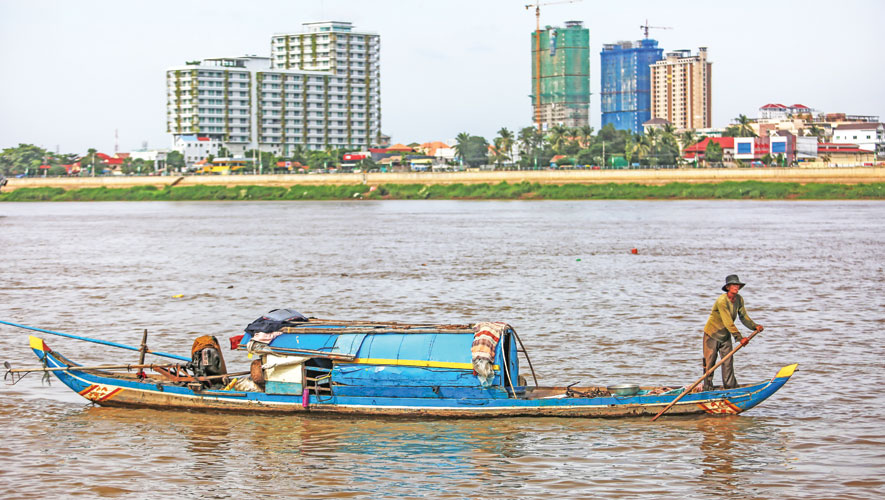AFP –Poaching of endangered species could rebound as authorities divert their attention to enforcing coronavirus lockdown measures, an international wildlife watchdog said, reporting stockpiling of ivory and other animal products as most borders remain shut.
For the latest Cambodian Business news, visit Khmer Times Business
The Wildlife Justice Commission (WJC) said that a ban on the sale of wild animals in China was causing backlogs in smuggling networks of pangolin scales and ivory across Southeast Asia.
But it warned that criminal gangs were adapting to tighter border controls amid the pandemic.
Stockpiles in Cambodia
WJC operatives, often acting undercover, reported large stockpiles of ivory in Cambodia, Vietnam and Laos following a string of recent seizures.
In Vietnam alone, smugglers had access to more than 22 tonnes of pangolin scales, the WJC said.
“Brokers have made it clear that they intend on returning their operations to previous levels as soon as possible,” Sarah Stoner, WJC’s director of intelligence, said.
Crime may rebound
“The stockpiling of huge quantities of wildlife products in many of the key countries concerned presents investigative opportunities for law enforcement.”
Nevertheless, Stoner said she expected high-value wildlife smuggling to rebound whenever COVID-19 restrictions are lifted.
The pangolin, an endangered species, is one of the most trafficked animals on earth, fuelling a multi-billion-dollar trade for their scales, prized as medicine in many Asian countries.
After COVID-19’s emergence in China late last year and following several studies suggesting the Novel Coronavirus may have been passed on to humans by pangolins, authorities in Beijing moved to ban the trade and sale of all wild animal products.
While that has affected the illicit trade of the products, the WJC cautioned that authorities risked leaving endangered species more vulnerable to poachers as they enforce lockdowns.
Major concern
“A major concern is that poaching incidents may increase during the lockdown period, as criminal networks exploit perceived opportunities of park closures, reduced patrols in protected areas, or the diversion of law enforcement resources to deal with COVID-19 issues,” it said.
Several major busts of illicit wild animal products have occurred across Asia and Africa after most of the world went into lockdown.
These include the seizure of more than six tonnes of pangolin scales in Malaysia and multiple busts of smaller shipments of ivory.
But the WJC said that without sustained focus from governments and other authorities to enforce stricter border controls that criminal networks would adapt and smuggling would soon rebound.
“It is important that additional resources be allocated to this problem and not merely diverting current resources to focus on the markets and leave organised crime a free hand,” said a concerned Stoner.




